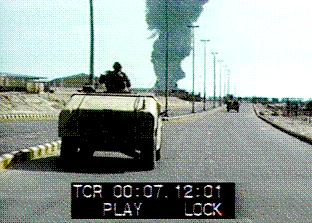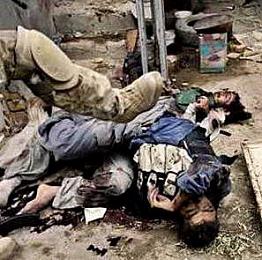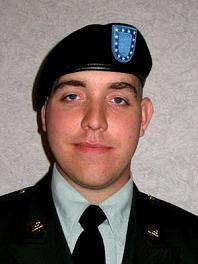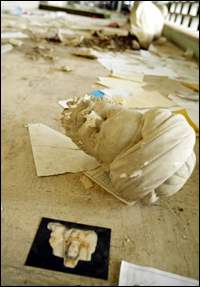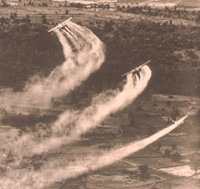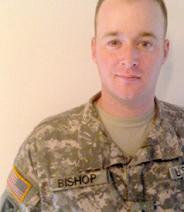US Navy Veterans Continue to Seek Justice for Israeli Attack
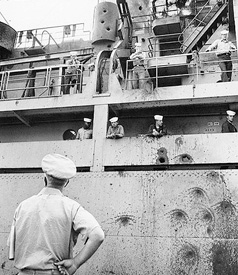
Damage to USS Liberty, June 1967. (Photo:
U.S. Navy)
The Israeli military has attacked a flotilla of international peace activists, killing as many as 19 innocent civilians while they were carrying ten tons of aid to break the Israeli blockade of Gaza. This is not the first time the Israeli military has attacked a nonthreatening entity in international waters.
On June 8, 1967, while sailing in international waters, the US Navy intelligence ship USS Liberty was attacked by air and naval forces of the state of Israel. Of the Liberty’s crew of 294, more than half were killed or wounded. More than 40 years later, survivors are still seeking justice.
The Israeli forces attacked with full knowledge that the Liberty was an American ship, yet survivors have been forbidden to tell their story under oath to the American public.
Joe Meadors was on the Liberty during the attack.
“I watched some jets pass us then turn left after they passed our ship, then they started strafing [attacking repeatedly with bombs or machine-gun fire from low-flying aircraft] us,” Meadors told Truthout.
“The attack lasted 90 minutes, during which we got a message off to the 6th fleet asking for assistance, and we learned later, Joe Tully, commanding officer of the USS Saratoga, launched aircraft within minutes of the attack, but he told us later they were recalled before they reached the horizon. We found this out 20 years after the attack.”
Meadors said he and his group, the USS Liberty Veterans Association, believe that Rear Adm. Lawrence Geis, the Sixth Fleet carrier division commander at the time of the attack, was following orders from Secretary of Defense Robert McNamara, who called off the Navy’s rescue mission for the USS Liberty.
Meadors, along with other survivors of the attack, have been engaged in what has evolved into a more than 40-year struggle to find justice.


























